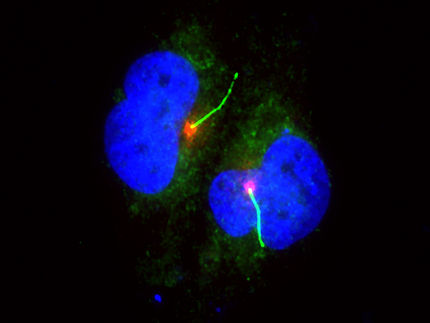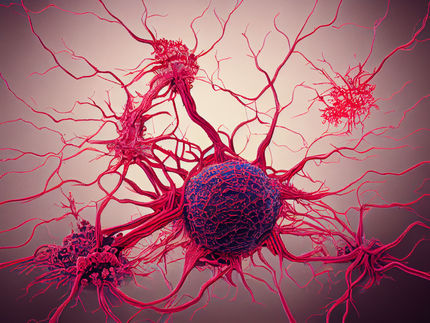The Mechanism Behind Melanoma Resistance to Treatment
Findings could pave the way for more effective therapies
In many cases of malignant melanoma, the effect of targeted treatment is lost over time. A research team from UZH and USZ has now discovered that a factor secreted by tumor cells is responsible for the resistance. These findings could pave the way for more effective therapies.
Malignant melanoma is one of the most aggressive types of cancer. Despite recent progress in effective therapies, the tumors of many patients are either resistant from the outset or become so during the course of treatment.
“It is therefore crucial to understand the mechanism behind resistance development in melanoma,” says Lukas Sommer, professor of stem cell biology at the Institute of Anatomy at the University of Zurich (UZH). A study under his lead has now identified a mechanism that impedes the effectiveness of therapies. The result provides new ideas for treatments to suppress the development of resistance. The project was carried out in collaboration with Mitch Levesque and Reinhard Dummer from the University Hospital Zurich (USZ).
Comparing resistant and non-resistant tumor cells
For the study, the team utilized an innovative fine-needle biopsy to sample tumor cells before and during therapy. This allowed the researchers to analyze each cell individually. The patients providing the samples were undergoing targeted cancer therapy for malignant melanoma, which inhibits signalling pathways for tumor formation.
“It was important that some of the tumors responded to the therapy, while others showed resistance,” says Sommer. This allowed the team to compare the metabolism and environment of resistant and non-resistant tumor cells and look for significant differences.
Interaction between tumor factor and immune cells
One of the most relevant findings concerned the POSTN gene: it codes for a secreted factor that plays an important role in resistant tumors. In fact, the tumors of patients with rapidly progressing disease despite treatment showed increased POSTN levels. In addition, the microenvironment of these tumors contained a larger number of a certain type of macrophage – a subtype of immune cell that promotes the development of cancer.
Through a series of further experiments – both with human cancer cells and with mice – the research team was able to show how the interaction of increased POSTN levels and this type of macrophage triggers resistance: the POSTN factor binds to receptors on the surface of the macrophages and polarizes them to protect melanoma cells from cell death. “This is why the targeted therapy no longer works,” says Sommer.
No resistance without cancer-promoting macrophages
The team considers this mechanism a promising starting point. “The study highlights the potential of targeting specific types of macrophages within the tumor microenvironment to overcome resistance,” says Sommer. “In combination with already known therapies, this could significantly improve the success of treatment for patients with malignant melanoma.”
Original publication
Jelena Vasilevska, Phil Fang Cheng, Julia Lehmann, Egle Ramelyte, Julia Martínez Gómez, Florentia Dimitriou, Federica Sella, Daria Ferretti, Adrian Salas-Bastos, Whitney Shannon Jordaan, Mitchell Paul Levesque, Reinhard Dummer, Lukas Sommer; "Monitoring melanoma patients on treatment reveals a distinct macrophage population driving targeted therapy resistance"; Cell Reports Medicine
























































